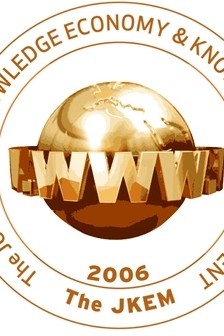EDUCATION AND INVESTMENTS IN HUMAN CAPITAL IN B&H. ENTERPRISES
The main characteristics of postindustrial era (new economy, knowledge economy) are rapid changes of political, economic, technological and social environment which are reflected in different market demands, way of doing business and competition. Knowledge as an organizational recourse is recognized by many companies as a source of competition in new conditions of constant changes. Developed market economies enterprises undertake huge programs of education and their employees development in order to meet market demands and to adapt unpredictable changes in contemporary turbulent environment becoming the biggest education institutions today. The fact that European Commission developed the long life learning program striving to make whole Europe area space of learning, confirm the importance of education today. Formal education in school and university is not enough to provide employee with knowledge to be capable for new more complex tasks in future. Long life learning is attempt of western economies to meet new market demands based on radical changes which lead economy from industry to services, to knowledge based economy. That is the reason why the continual learning is an imperative not only for the company but for the individuals too. The aim of this paper is to analyze the importance of learning and investments in education in bh. enterprises as well as try to find out how bh. enterprises recognize the role of knowledge and employees education in achieving of competitive advantage today.
Anahtar Kelimeler:
investments in education of employees JEL: O15
EDUCATION AND INVESTMENTS IN HUMAN CAPITAL IN B&H. ENTERPRISES
The main characteristics of postindustrial era (new economy, knowledge economy) are rapid changes of political, economic, technological and social environment which are reflected in different market demands, way of doing business and competition. Knowledge as an organizational recourse is recognized by many companies as a source of competition in new conditions of constant changes. Developed market economies enterprises undertake huge programs of education and their employees development in order to meet market demands and to adapt unpredictable changes in contemporary turbulent environment becoming the biggest education institutions today. The fact that European Commission developed the long life learning program striving to make whole Europe area space of learning, confirm the importance of education today. Formal education in school and university is not enough to provide employee with knowledge to be capable for new more complex tasks in future. Long life learning is attempt of western economies to meet new market demands based on radical changes which lead economy from industry to services, to knowledge based economy. That is the reason why the continual learning is an imperative not only for the company but for the individuals too. The aim of this paper is to analyze the importance of learning and investments in education in bh. enterprises as well as try to find out how bh. enterprises recognize the role of knowledge and employees education in achieving of competitive advantage today.
___
- Bahtijarević-Šiber Fikreta: Management ljudskih potencijala, Golden marketing, Zagreb, 1999
- Dessler Gary: Osnovi menadžmenta ljudskih resursa (prevod), Data status, Beograd, 2007
- Ivancevich John M.: Human Resource Management, 7th ed, Irwin McGraw-Hill Inc, 1998
- Noe Raymond A., Hollenbeck John R., Gerhart Barry, Wright Patric M.: Menadžment ljudskih potencijala, Mate, Zagreb, 2006
- Price A.: Human Resource Management, South Western Cengage Learning, London, 2007
- Robbins Stephen P., Coulter Mary: Menadžment (prevod), Data status, Beograd, 2005
- Stone Raymond J.: Human Resource Management 4th ed, Wiley, 2002
- Torrington Derek, Hall Laura, Taylor Stephen: Menadžment ljudskih resursa, Data status, Beograd, 2004
- Weihrich Heinz, Koontz Harold: Menedžment, 10th ed, McGraw-Hill, Mate, Zagreb, 1994
- Albu Ruxanda-Gabriela: E-Larning-One of the most important educational challenges of 21 st century, Process of Bologna and Lifelong Learning in the hotel and Tourism Industry, 2009, pp.15 – 26
- Almondo M., Morse G.: Sparking Creativity at Ferrari, Harvard Business Review, A Year of Management Ideas, January, 2007
- Cappelli P.: Talent Management for the Twenty First Century, Harvard Business Review, March, 2008
- Edmondson Amy C.: The Competitive Imperative of Learning, HBR, July, 2008
- Garvin David A., Edmondson Amy C., Gino Francesca: Is Yours a Learning Organisation?, HBR, March, 2008
- Harryson S., Lorange P.: Bringing the College Inside, Harvard Busuness Review, December, 2005
- Jacobson Al, Prusak Laurence: The Cost of Knowledge, HBR, November, 2006
- Martin J., Schmidt C.: How to Keep Your Top Talent, Harvard Business Review, May, 2010
- McDonough E.F., Zack M., Lin H., Berdrow I.: Integrating Innovation Style and Knowledge Into Strategy, Harward Business Review, Octobar, 2008
- Meister Jeanne C., Willyerd Karie: Mentoring Millennials, Harvard Business Review, May, 2010
- Pološki Vokić Nina, Vidović Maja: HRM as a significant factor for achieving competitiveness through people – The case of Croatia, Working Paper Series, Paper No.07-01, 2007, Faculty of economics and business, Zagreb (http://www.efzg.hr/wps) 07.05.2010.
- Pološki Vokić Nina, Grizelj Helena: Obrazovanje i razvoj zaposlenika u hrvatskim organizacijama, Ekonomski pregled, 58 (12) 851-880, 2007 (http://hrcak.srce.hr/file/30389) 07.05.2010.
- Pugh Katrina, Dixon Nancy M.: Don't Just Capture Knowledge – Put It to Work, HBR, May, 2008
- Vineet N.: An Overview of the „Employees First, Customers Second“ Approach to Management – How Empowering Your Emploeeys fits the Stage for Transformation Growth, Harvard Business Review, June, 2010 APPENDIX
- Yayın Aralığı: Yılda 2 Sayı
- Başlangıç: 2006
- Yayıncı: İbrahim Güran YUMUŞAK
Sayıdaki Diğer Makaleler
DEVLETİN İKTİSADİ BÜYÜMEDEKİ ROLÜ
DEMOKRATİKLEŞME VE EKONOMİK KALKINMA: ETKİLEŞİM ANALİZİ
Sinan Çukurçayir – Keramettin TEZCAN, Keramettin TEZCAN
BİLGİ PAYLAŞIMI BAKIMINDAN DEVLET SIRRI KAVRAMI VE ULUSAL GÜVENLİK
Ufuk Türen – Yunus Gökmen – Hakan DİLEK, Ufuk TÜREN, Yunus GÖKMEN, Hakan DİLEK
LIFE SYTLES AND HEALTH PROBLEMS OF TURKISH YOUTH STUDYING IN SECONDARY SCHOOLS OF ROTTERDAM
Fahri Çaki – Kadir CANATAN, Fahri ÇAKI
Sebahattin Yildiz – Sevda Eliş YILDIZ, Sebahattin YILDIZ, Sevda ELİŞ YILDIZ
Nurdan ÖZARALLI – Alev TORUN, Alev TORUN
STUDENTS’ PERCEPTIONS OF IT SUPPORTED LEARNING
Meliha Handzic – Merdžana Obralic – Emir CICKUSIC, Meliha HANDZIC, Merdžana OBRALIC, Emir CICKUSIC
